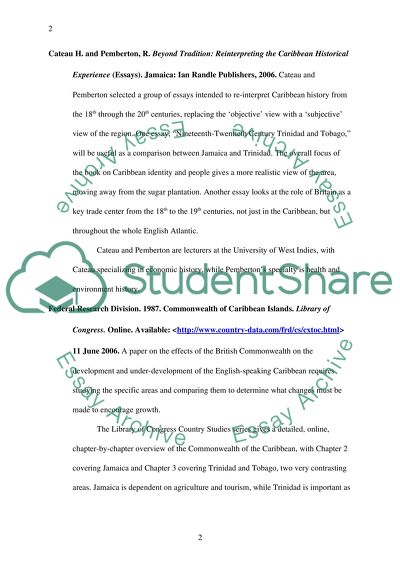Cite this document
(“The English commonwealth and its effect on Caribbean Nations Essay”, n.d.)
The English commonwealth and its effect on Caribbean Nations Essay. Retrieved from https://studentshare.org/english/1500280-the-english-commonwealth-and-its-effect-on-caribbean-nations
The English commonwealth and its effect on Caribbean Nations Essay. Retrieved from https://studentshare.org/english/1500280-the-english-commonwealth-and-its-effect-on-caribbean-nations
(The English Commonwealth and Its Effect on Caribbean Nations Essay)
The English Commonwealth and Its Effect on Caribbean Nations Essay. https://studentshare.org/english/1500280-the-english-commonwealth-and-its-effect-on-caribbean-nations.
The English Commonwealth and Its Effect on Caribbean Nations Essay. https://studentshare.org/english/1500280-the-english-commonwealth-and-its-effect-on-caribbean-nations.
“The English Commonwealth and Its Effect on Caribbean Nations Essay”, n.d. https://studentshare.org/english/1500280-the-english-commonwealth-and-its-effect-on-caribbean-nations.


